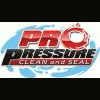http://www.propaverseal.com/faqs/
What does sealing do?
Pavers are porous. They will absorb fluids spilled on them such as oil. They also will fade over time. Sealing will protect the pavers from fading spills and drips (as long as you rinse any spills off in a timely manner,) by adding a barrier at the surface. It will also protect from deep mildew stains because moisture will dry faster not allowing the mildew time to grow.
When should I seal my pavers?
Most manufactures suggest you wait 30 days after the manufacture date prior to sealing. With our sealer you can seal them right away, but you don’t want to risk voiding any warranty. 30 days usually allows any efflorescence to exhaust itself through the hydration and drying process.
When should I re-seal my pavers.
Most sealers will last 3 years before wearing off enough to reseal. Provided, of course, that they were sealed properly the first time. Not all pavers are the same and combined with environmental factors, sealer can wear off at different rates. The best way to check is splash some water on them. If the water absorbs quickly, and the paver changes color for a time, it is time to re-seal.
Can stop the sand from washing out and can I keep weeds and ants out?
Yes. To a point. Look for sealers that are “sand stabilizing sealers” such as Seal ‘n Lock. They bond the sand in place deep into the joint, keeping the sand from washing away. Other sealers only harden the sand on the very surface of the joint. That being said, pavers shift. Even bonded sand will develop micro cracks and holes where a weed seed can take hold. Some grasses like nuttsedge are very hardy and will push up through the base gravel. Ants can dig through. Sealing can minimize these but not eliminate the problem completely.
How long does it take to clean and seal?
Depending on the size of the project, 1 day is usually sufficient. Our sealer-Seal ‘n Lock-is designed to be applied on damp pavers. Other water based sealer may or may not allow that.
What should I do if my pavers are cloudy after sealing?
If this has happened to your pavers it is probably because a solvent based sealer was applied on damp pavers. Solvent based sealers need the pavers to be dry for several days before applying sealer or the sealer can turn white and cloudy. This also happens due to too much sealer or multiple coats and moisture has become trapped. Click this link for examples. http://www.propaverseal.com/paver-stripping/
What do I need to do when the work is scheduled?
All we ask is that you remove the furniture for us prior to the start of work. There will be dirt and sand in the pool after cleaning but we will vacuum the pool prior to leaving so you don’t have to. You may need to brush the pool and have the chemical balance checked the day after and adjust accordingly. You may replace your furniture and use the pool the next day. On driveways, do not drive for 48 hours to allow full curing.


